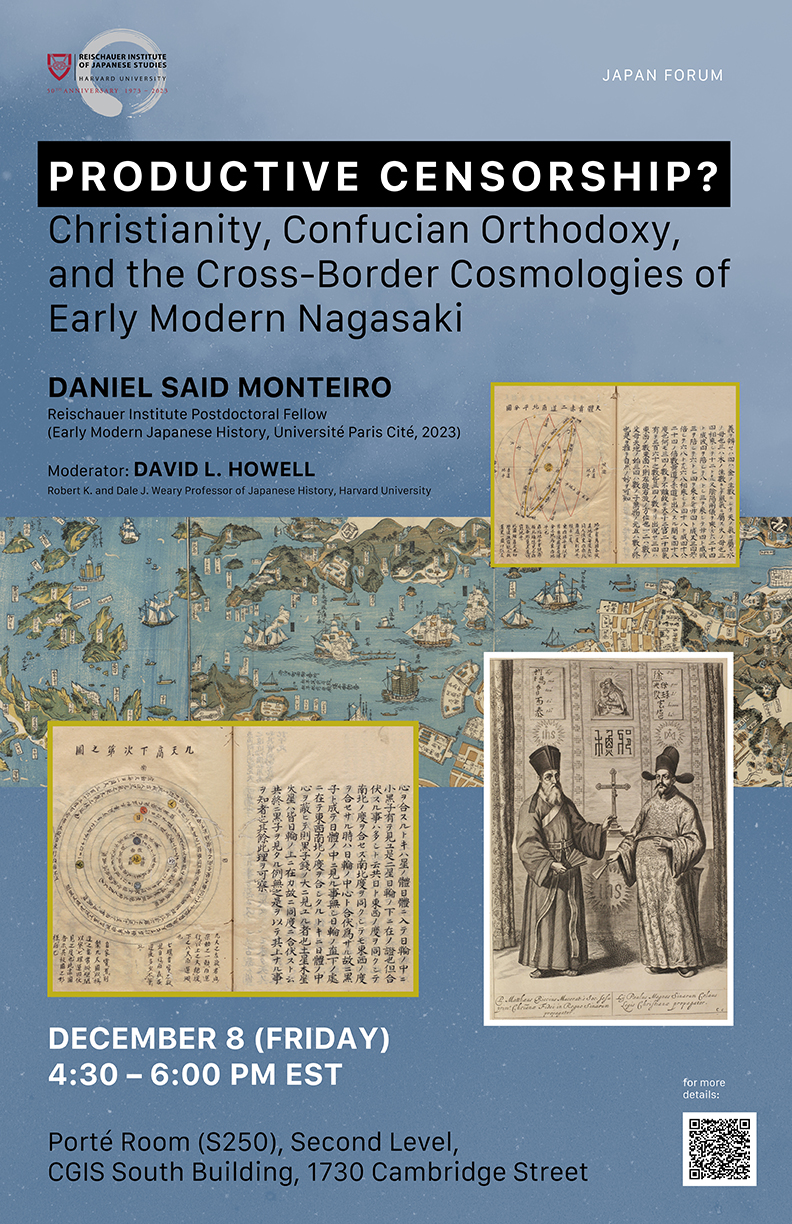Productive Censorship? Christianity, Confucian Orthodoxy, and the Cross-Border Cosmologies of Early Modern Nagasaki
In the aftermath of increasingly restrictive policies against Christianity during the first decades of the 17th century, Nagasaki became a key port for obtaining and controlling sensitive information that reached Tokugawa Japan. Monks and local scholars were employed in the “inspection of writings,” ensuring that Sinitic texts arriving from the continent were stripped of any reference to the prohibited “Sect of Jesus.” Temples and shrines replaced former Catholic sites, and burgeoning Chinese-speaking communities congregated around their own venues of worship, transforming the cultural landscape of a city formerly dominated by Jesuit missionaries. In this changing environment, the Confucian academy Nagasaki Seidō emerged as a privileged site for the production of orthodox knowledge to combat the “heretic teachings” of the Jesuits. This talk delves into the productive dimensions of censoring practices performed by scholars associated with the Nagasaki Seidō. I argue that Jesuit cosmological views presented in Sinitic texts circulated throughout Tokugawa Japan not despite the censorship of Christian texts but largely because of it. Local scholars and Chinese interpreters were pivotal for curating different types of knowledge that passed through the port city, translating unfamiliar epistemic systems into well-established Confucian paradigms.
THIS EVENT TOOK PLACE IN ACADEMIC YEAR 2023-24
Reischauer Institute Japan Forum Lecture Series
